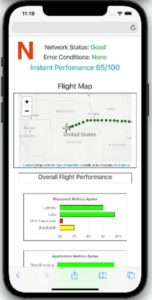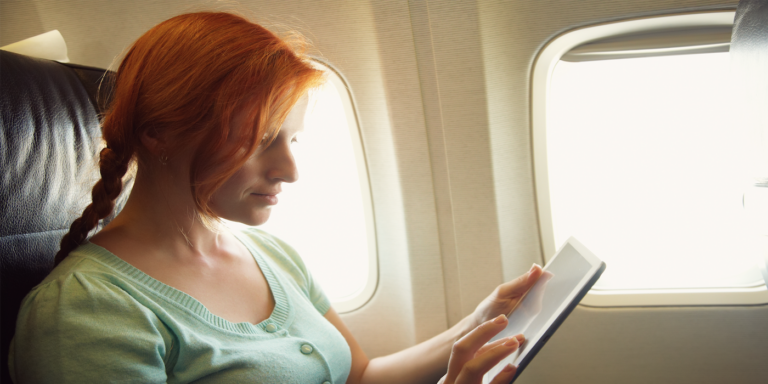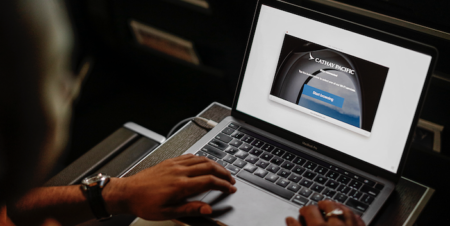The USA’s Department of Transportation has published a Notice of Proposed Rulemaking (NPRM) that would require airlines to refund fees for services that have been paid for by passengers but not adequately delivered, such as significant delays in delivering checked baggage, advance seat selections not being honoured – or inflight connectivity underperforming.
In response NetForecast, a company that can audit internet performance measurement and data usage accuracy, is launching a service to independently and proactively monitor the quality of the inflight wi-fi experience, enabling airlines to identify and correct any performance issues. The service, named QMap, continuously measures the passenger wi-fi experience from personal electronic devices, and reports on end-to-end network experience quality in near real-time.
 The service notifies airlines when the passenger experience degrades below pre-determined thresholds, and locates problem areas along the network path within the aircraft wi-fi network, between the aircraft and the ground station, and beyond that to intermediate networks and network destinations.
The service notifies airlines when the passenger experience degrades below pre-determined thresholds, and locates problem areas along the network path within the aircraft wi-fi network, between the aircraft and the ground station, and beyond that to intermediate networks and network destinations.
NetForecast says that end-to-end monitoring is important because the quality of a passenger’s wi-fi experience depends on the aggregated quality of service delivered by all elements along the network path. The QMap service is calibrated to reflect realistic performance expectations for the various network technologies, such as geosynchronous satellite, cellular, low-earth orbit satellite, etc.
NetForecast is a privately held, woman-owned company headquartered in Charlottesville, Virginia. Its president, Rebecca Wetzel stated, “As members of the Airline Passenger Experience Association’s (APEX) Connectivity Working Group, we collaborated with the industry to create a specification that provides guidance for measuring and assessing passenger inflight wi-fi experience quality. We are excited to put that industry guidance to work with our new QMap service to empower airlines to deliver the best possible experience to their wi-fi connected passengers.”





